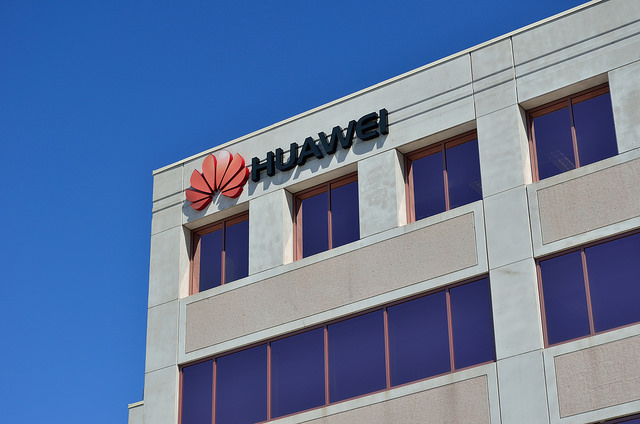News
Huawei denies committing violations cited by US Justice Dept

The charges from Seattle allege that beginning in 2012, Huawei plotted to steal information about T-Mobile’s robot, named “Tappy.” It says Huawei engineers secretly took photos of the robot, measured it and tried to steal part of it from T-Mobile’s lab in Washington state, according to prosecutors. T-Mobile declined to comment. (File photo: Open Grid Scheduler/Grid Engine/Flickr, Public Domain)
BEIJING — Chinese tech giant Huawei on Tuesday denied committing any of the violations cited in a U.S. indictment accusing the company of stealing technology, violating trade sanctions and lying to banks.
The Justice Department unsealed criminal charges Monday that allege the company used extreme efforts to steal trade secrets from American businesses — including trying to take a piece of a robot from a T-Mobile lab that was used to test smartphones.
“The company denies that it or its subsidiary or affiliate have committed any of the asserted violations of U.S. law set forth in each of the indictments,” Huawei Technologies Ltd. said in a statement. It said Huawei is “not aware of any wrongdoing by Ms. Meng, and believes the U.S. courts will ultimately reach the same conclusion.”
The company said U.S. prosecutors had rejected a request it made to discuss the investigation following the arrest of its chief financial officer, Meng Wanzhou, in Canada in December. It also noted that the allegations in the trade secrets charge were the subject of a U.S. civil lawsuit that already has been settled.
The U.S. is seeking to extradite Meng, alleging that Huawei did business in Iran through a Hong Kong company called Skycom and that she misled U.S. banks into believing the two companies were separate.
Meng is out on bail in Vancouver and her case is due back in court Tuesday as she awaits extradition proceedings to begin. Her case has set off diplomatic spats between the United States, China and Canada.
The latest charges could dim prospects for progress in a two-day round of trade talks between the United States and China scheduled to begin in Washington on Wednesday.
The two countries agreed on Dec. 1 to negotiate for 90 days to try to defuse worsening trade tensions. Trump postponed a planned increase in U.S. tariffs on $200 billion of Chinese goods from 10 per cent to 25 per cent during the talks. A breakdown in negotiations would likely lead to higher tariffs, a prospect that has rattled financial markets for months.
Monday’s announcement of criminal charges “is certainly not a propitious sign for U.S.-China trade tensions and could hamper prospects for even a partial deal in the coming weeks,” said Eswar Prasad, an economics professor and China expert at Cornell University.
The Justice Department officials provided details from a 10-count grand jury indictment in Seattle, and a separate 13-count case from prosecutors in the Eastern District of New York.
The charges from Seattle allege that beginning in 2012, Huawei plotted to steal information about T-Mobile’s robot, named “Tappy.” It says Huawei engineers secretly took photos of the robot, measured it and tried to steal part of it from T-Mobile’s lab in Washington state, according to prosecutors. T-Mobile declined to comment.
There is no allegation Huawei was working at the direction of the Chinese government. In past instances, the U.S. government has singled out Beijing in corporate or digital espionage and has recently charged several Chinese hackers and intelligence officials.
———
Associated Press writers Michael Balsamo, Eric Tucker and Christopher Rugaber in Washington, Rob Gillies in Toronto and Tali Arbel in New York contributed to this report.





















